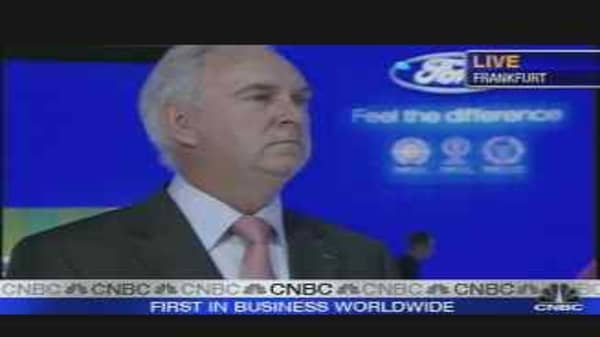Porsche were immensely successful with the Cayenne. I wish them as much luck with their plans to go hybrid. CO2 emission reduction has been a business opportunity for many, not the car sector. In fact, targets on C02 emissions reduction have already started to turn the automotive world upside down. What really nags me about this year's focus on CO2 emissions is that the Cayenne Hybrid, the Volvo recharge and most of the other hybrids on show have less to do with car makers looking to make money in new markets and much to do with car makers scrambling to meet new CO2 emissions targets that will be set by the EU.
Should the German automotive industry lobby not be able to get their way in Brussels, the EU could soon set CO2 targets based on the output of a car makers' entire fleet of models, rather than a per-pound-of -vehicle-produced statistic. BMW, which specializes in fast engines, would obviously have it much worse than Fiat, which makes small cars that have engines with low horse power. Is it starting to become clear to you why the highly-profitable Porsche is buying the not-so-profitable VW? With the two merged into one company, Porsche would suddenly be able to reduce its carbon emissions average by a significant measure.
Sounds like a business decision made on economic rationale to you? Me neither.
New CO2 targets aren't the only headwind the automotive industry faces. Subprime has already hit the wallet of the US car buyer. July and August sales data prove the point with all carmakers showing a real turn in fortunes. So as the U.S. consumer stops buying cars, who will provide the top-line growth? CHINDIA? Perhaps in volume terms, but there isn't much profit margin in those markets yet. Only Europe can save the profitability of the auto industry for now so the car makers better have some good products on offer in Frankfurt.



